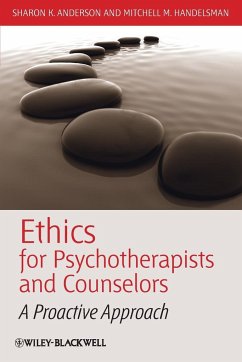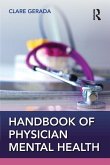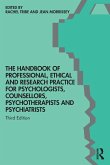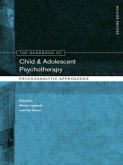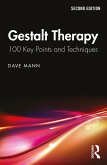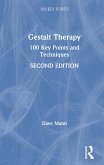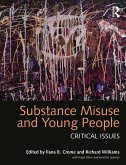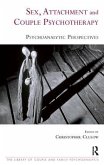Ethics for Psychotherapists and Counselors is the first ethics book designed to engage students and psychotherapists in the process of developing a professional identity that integrates their personal values with the ethics and traditions of their discipline.
Hinweis: Dieser Artikel kann nur an eine deutsche Lieferadresse ausgeliefert werden.
Hinweis: Dieser Artikel kann nur an eine deutsche Lieferadresse ausgeliefert werden.
"This book does not just teach professional ethics. It encourages students to aim high by supporting development of their professional and personal identities. That is the essence of sound ethical practice, and the authors have captured it."
-Michael C. Gottlieb, Ph.D., ABPP, Independent Practice, Dallas, TX
"This excellent book for students or any professionals in psychotherapy and counseling is part of a welcome trend in ethics education that challenges students to strive for their highest ethical ideals. Anderson and Handelsman do far more than repeat rules and facts; they use the ethical acculturation model to encourage students to reflect on their professional identity and values. The book contains useful learning aides and exercises such as the ethics autobiography, the ethics journal, realistic vignettes, appendices, and useful charts. Anderson and Handelsman succeed in presenting their well considered perspectives on psychotherapy in a clear and personal style of writing. I highly recommend this book!"
-Samuel Knapp, Ed.D., Director of Professional Affairs, Pennsylvania Psychological Association
"I really like this book....it approaches ethics in a manner that is hopeful, positive, but no-nonsense and thorough. I think it is one of the best integrations of concepts around ethics and ethical decision-making processes that I have seen, and one of the most easily applied to a variety of levels of training. I also like the application of an acculturation model as a way to understand our initiation into the part of our profession that has to do with ethics, ethical decision-making and ethical behavior."
-Susan L. Prieto-Welch, Counseling Center Director, University of Notre Dame, Counseling Psychology
"Anderson and Handelsman have written a truly unique ethics book; one that will be of value to every new as well as seasoned psychotherapist in professions from social work to psychiatry. They write about professional ethics as a process of acculturation that requires the reader to consider themselves, their motivations, and their feelings about the ethical requirements of the professions. In order to facilitate the process of self-awareness, they provide a series of activities like journaling to help the professional continue to expand their awareness as they encounter topics like confidentiality or multiple relationships. Whether or not an instructor chooses this book as a primary text, it should be a supplement to every course that is taught."
-Karen Strohm Kitchener, Professor Emeritus, University of Denver
"This book is unique in my experience in that it encourages readers to reflect on their own ethical predispositions as they think about psychotherapy ethics. The book also helps students understand differences between being an ethical person and an ethical psychotherapist--a distinction that is difficult for most students, and many professionals, to appreciate. The authors' emphasis on helping readers know themselves as well as the professional ethical guidelines is an important advance over other ethics texts. The discussion of "positive ethics" is also unique and helpful for professionals."
-William E. Sobesky, Ph.D., Clinical Associate Professor of Psychiatry and Pediatrics, University of Colorado Health Sciences Center
"This book is interesting and engaging. A variety of scenarios and exercises make the process come alive for the reader and encourage self-assessment and self-reflection. As an instructor I think the text would generate many meaningful class discussions. It is easy-to-read and easy to follow."
-Robin Lewis, Old Dominion University
-Michael C. Gottlieb, Ph.D., ABPP, Independent Practice, Dallas, TX
"This excellent book for students or any professionals in psychotherapy and counseling is part of a welcome trend in ethics education that challenges students to strive for their highest ethical ideals. Anderson and Handelsman do far more than repeat rules and facts; they use the ethical acculturation model to encourage students to reflect on their professional identity and values. The book contains useful learning aides and exercises such as the ethics autobiography, the ethics journal, realistic vignettes, appendices, and useful charts. Anderson and Handelsman succeed in presenting their well considered perspectives on psychotherapy in a clear and personal style of writing. I highly recommend this book!"
-Samuel Knapp, Ed.D., Director of Professional Affairs, Pennsylvania Psychological Association
"I really like this book....it approaches ethics in a manner that is hopeful, positive, but no-nonsense and thorough. I think it is one of the best integrations of concepts around ethics and ethical decision-making processes that I have seen, and one of the most easily applied to a variety of levels of training. I also like the application of an acculturation model as a way to understand our initiation into the part of our profession that has to do with ethics, ethical decision-making and ethical behavior."
-Susan L. Prieto-Welch, Counseling Center Director, University of Notre Dame, Counseling Psychology
"Anderson and Handelsman have written a truly unique ethics book; one that will be of value to every new as well as seasoned psychotherapist in professions from social work to psychiatry. They write about professional ethics as a process of acculturation that requires the reader to consider themselves, their motivations, and their feelings about the ethical requirements of the professions. In order to facilitate the process of self-awareness, they provide a series of activities like journaling to help the professional continue to expand their awareness as they encounter topics like confidentiality or multiple relationships. Whether or not an instructor chooses this book as a primary text, it should be a supplement to every course that is taught."
-Karen Strohm Kitchener, Professor Emeritus, University of Denver
"This book is unique in my experience in that it encourages readers to reflect on their own ethical predispositions as they think about psychotherapy ethics. The book also helps students understand differences between being an ethical person and an ethical psychotherapist--a distinction that is difficult for most students, and many professionals, to appreciate. The authors' emphasis on helping readers know themselves as well as the professional ethical guidelines is an important advance over other ethics texts. The discussion of "positive ethics" is also unique and helpful for professionals."
-William E. Sobesky, Ph.D., Clinical Associate Professor of Psychiatry and Pediatrics, University of Colorado Health Sciences Center
"This book is interesting and engaging. A variety of scenarios and exercises make the process come alive for the reader and encourage self-assessment and self-reflection. As an instructor I think the text would generate many meaningful class discussions. It is easy-to-read and easy to follow."
-Robin Lewis, Old Dominion University

